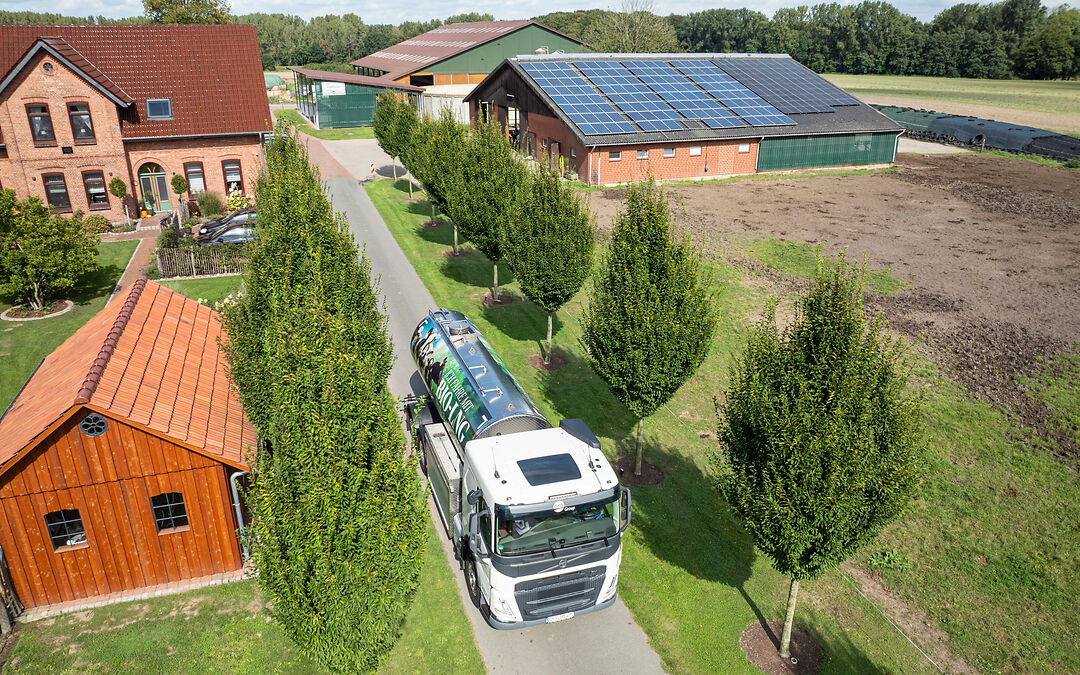Why there is no alternative to climate protection for DMK
Hardly any other industry is as dependent on the weather as agriculture. Even a short, violent storm or a frosty night in spring can spell disaster. This makes it all the more important for us, as a co-operative company owned by farmers, to be part of the solution and actively contribute to climate protection and the reduction of emissions. The necessity and urgency of these measures is completely beyond question for us. Accordingly, we want to make a contribution to limiting global warming to 1.5°C in line with the Paris Climate Agreement and with ambitious targets. And thus actively contribute to avoiding heat stress and a greater risk of animal diseases in order to minimise risks for the dairy industry.
What does that look like in concrete terms?
DMK has been working intensively on the topic of climate protection since 2012. On average, DMK's farms already had a low footprint for the industry as a whole. From an already low starting point, a further reduction is challenging, but it is the right path for us. To achieve this, we are testing various measures on our Net Zero farms to further reduce CO2 emissions in the long term. We are cooperating with our customers to roll out these measures and are pursuing the goal of jointly managing the resulting costs in the interests of climate protection.
What is DMK's long-term goal?
As a first step, we became one of the first German dairies to commit to the global initiative's climate targets by joining the Science Based Target Initiative (SBTi) in June 2022. In our sustainability strategy, we have thus set ourselves the goal of reducing total greenhouse gas emissions by at least a further 20% by 2030 compared to 2020. This takes into account Scope 1, 2 and 3 emissions. In the next step, we have now adjusted our emissions reduction target to the now higher SBTi targets and had it reviewed and validated by the initiative. And now we are going one step further in terms of climate protection. We want to reduce Scope 3 emissions by a total of 25% by 20302 . FLAG emissions, which relate to forestry, agriculture and agribusiness, account for a large proportion of this. We plan to save 30.3% in this area alone. For Scope 1 and 2 emissions, a 42% reduction is planned by 2030.

![[Translate to English:] [Translate to English:]](https://dmk.de/fileadmin/_processed_/e/7/csm_DMK_28A5636_45c62fc95c.jpg)
![[Translate to English:] [Translate to English:]](https://dmk.de/fileadmin/_processed_/4/4/csm_DMKDJI_0788_66094bf056.jpg)
![[Translate to English:] [Translate to English:]](https://dmk.de/fileadmin/_processed_/2/a/csm_So-handeln-wir-Stageimage_07bda3ae8a.jpg)
